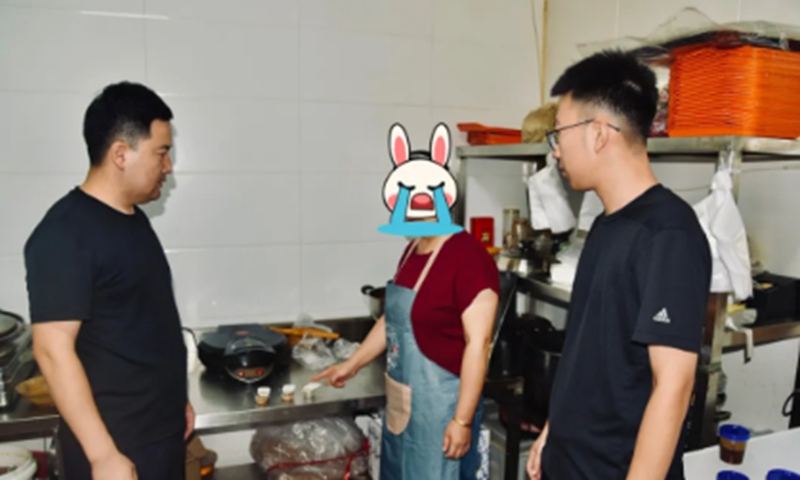
A photo from media reports shows the scene of investigation
In a shocking turn of events, police officers in North China's Inner Mongolia Autonomous Region accidently found a restaurant adding illegally poppy husk power to food, after two auxiliary police officers who had a breakfast there tested positive for morphine in their urine, but they denied they have taken drugs.According to China News Service on Monday, during a drug test recently conducted by the local police department in Uxin Banner, Ordos city, Inner Mongolia Autonomous Region, the two auxiliary police officers were shocked that they tested positive for morphine. But after several retests, the results remained positive.
Local authorities immediately launched an investigation, leading to a crucial clue coming to light.
It turns out that on the morning of the urine test, the two officers had breakfast together at a popular roujiamo (also known as a Chinese hamburger) restaurant. Subsequently, undercover police officers went to the shop to purchase the same breakfast, but their results came back negative, leaving the investigators puzzled. Could it really be their colleagues breaking the law?
The investigators then revealed their identities and engaged in a conversation with the restaurant owner. Upon inspecting the kitchen, an old chopping board caught their attention. Samples were taken from the board and tested positive for morphine. So, the officers' abnormal urine test results were due to consuming roujiamo containing poppy husk.
The couple, surnamed Lei and Li, who owned the restaurant, illegally purchased poppy husk as they wrongly believe food with the ingredient would be tastier. They ground the poppy husk into powder and added it to the food before selling it to customers.
The local public security bureau has taken coercive measures against the two suspects for the crime of producing and selling toxic and harmful food, and the case is under further investigation.
According to China News Service, poppy husk contains substances like morphine that can lead to addiction and have toxic effects on the liver and heart with prolonged consumption. The residual alkaloids in poppy husk can numb the nerves and organs.
It is illegal to add poppy husk to food in China. According to the Criminal Law of China, those who mix toxic and harmful non-food materials into food during production and sale face imprisonment of up to five years and a fine.
Global Times-China News Service

